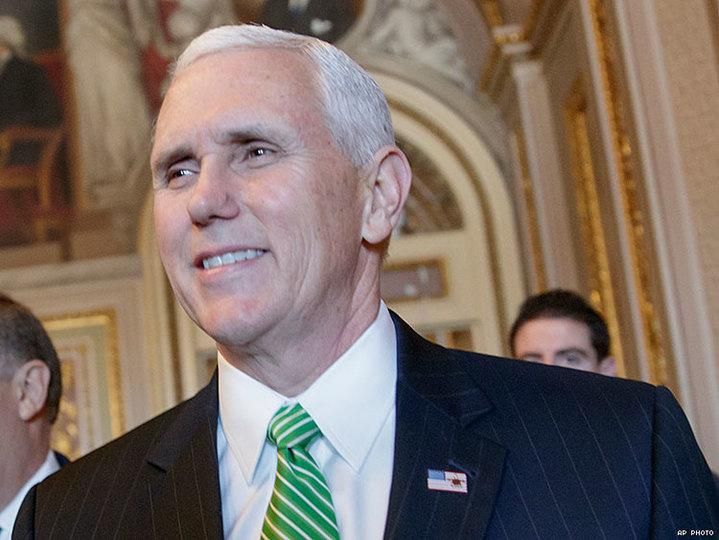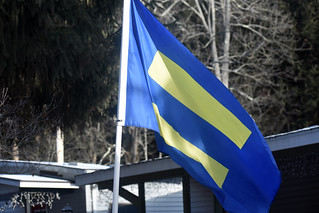Theresa May Must Face Down Right-Wing Press On Foreign Aid, Says Ex-BBC War Correspondent
Politicians have a moral responsibility to face down right-wing newspapers campaigning for the Government to slash the UK foreign aid budget, Martin Bell has said.
The veteran war correspondent, former independent MP and one-time soldier said the Tory government risked paying “too much attention to the headlines in the Daily Mail” while war and poverty gripped huge swathes of the globe.
The Daily Mail, the Daily Express and The Sun are leading critics of the UK spending around £13bn on foreign aid last year and want Theresa May to take an axe to the budget.
Bell said the UK should be spending more, up to 5% of GDP (around £96bn), and voiced fears Brexit will diminish the UK’s role as a global power.
Speaking to HuffPost UK as part of our Christmas appeal with Unicef to help children in war-torn Syria, the former Tatton MP said: “The continent of Europe is overflowing with refugees. We cannot close our borders and we cannot close our hearts, either.
“I think foreign aid is at least as important outside of Europe as it is inside of it.
“I’ve been a politician. I know how vulnerable they are to pressures, especially the pressures of the populist press, but this is a time to hold firm.”
He added: “There is a danger, especially with Conservative Governments though the last Labour Government became the same way, that MPs pay too much attention to the headlines in The Daily Mail.”
It has been almost seven years since the war in Syria broke out. The UN estimates around 400,000 have died and more than 13m Syrians have been displaced.
Bell, who had a long and distinguished career as a foreign affairs reporter, said the media was failing to provide any in-depth and desperately-needed coverage of global conflicts.
“I’m concerned that we are pulling up the drawbridge,” he said. “I am absolutely horrified at this Britain first attitude. It doesn’t sound good for us, one of the great imperialist powers of history now retreating into our little island.
“I think the people can still be convinced but the journalism has to be improved. We have to get our act together. We need to pay more attention to what is going on outside our borders.
“The foreign news component in our newspapers has reduced considerably – or even become celebrity driven.”
US President Donald Trump plans to slash up to 40% of US voluntary contributions to the UN, a move which would directly affect the children’s agency Unicef, an organisation for which Bell is an ambassador.
Bell has deep concerns about the right-winger’s presidency and his attacks on journalists.
“The term ‘fake news’ is very dangerous,” he said. “Goebbels would have had a ball these days. All he had to work on was the cinema, radio and newspapers. Imagine what he could have done with clickbait and rolling news.
“People will cease to believe in fact-based reports and news-gathering. They will stop believing that the news is what the facts are.
“Trump began his presidency with a flagrant fallacy about the size of the crowd at his inauguration and he hasn’t stopped since.
“One of the dangers of the internet, also, is that people will only go to the sites that reinforce their beliefs, so it contributes to a closing of the mind and the closing of the heart, and you get ‘America first’, ‘Britain first’.
“The consequence of that is that it becomes harder and harder to fund the necessary programmes. Syria has become an invisible emergency and I think the answer is a different kind of journalism.
“There is will among the people as long as the plight of people in Syria is presented to them. We need more journalists to go to these camps because money follows the cameras.”
Bell hit out at the “Murdochisation” of BBC News 24 when he left to stand for office in George Osborne’s former constituency of Tatton.
“Donald Trump would never have been elected without the engines of the internet and the rolling news channels,” he said. “I’m appalled by rolling news. I started off in Alexandra Palace, the origin of television.
“Rolling news knows more than it shows. Speculation begins as soon as they have pictures. What you used to do is go and find things out and put them together and tell the full story.”
Bell says it is “entirely possible” the war in Syria could rage on for another seven years, despite the so-called Islamic State being largely beaten as rebels continue to fight pro-government forces.
He said: “I don’t even know what the British policy should be now. If I was the Foreign Secretary I wouldn’t know what to say.
“We have not been influential and we may be even less influential outside of Europe than we were in it.”
The former soldier added that the British Government does not have the capacity to intervene.
He said: “I don’t think the military intervention is an option. We tried military interventions in Iraq and Afghanistan.
“I don’t think we have got a big enough army. The military I served in was 400,000-strong and now it is coming down to 80,000.
“If it is below the level of a critical mass, you are not much more than an armed border policing service.
“We can run a short campaign for a limited period but we would find it extremely difficult to put a division in the field, as we did in 1991 and 2003. We don’t have the means.”
He added: “We can support our aid agencies but we can’t influence the outcome.
“We have to fight the tendency of any people to ignore a war that they don’t see on their television sets.”
HuffPost UK spent a week in Jordan, visiting Azraq, Mafraq and Unicef projects supporting Syrian refugee children.
“These children, who are just seven, speak of Syria as home, even though they have never been there,” said Bell, who recently visited Syrian refugee camps in Lebanon. “They are almost in denial that the war is still going on. It is so hard to hear.
“The biggest problem facing refugee children is education. You will find nine and ten-year-olds who are barely literate.
“The Lebanese schools are amazing. Many are working double shifts.
“But the danger is that you lose your childhood and you grow up ignorant and illiterate.”
“The only difference is PTSD, and I have been to many Combat Stress centres here in the UK, we used to being concerned about its effect on soldiers,” said Bell. “But the only difference with a child is that the effects of PTSD will last a lot longer. It’s quite an important difference.
“What these children have seen will haunt them all their days.”
Bell called on as many people as possible to donate money to Unicef to help Syrian children.
“After this campaign is over, don’t forget them,” he said.
www.huffingtonpost.co.uk/entry/syria-martin-bell-unicef_uk_5a464c05e4b06d1621b831a0








